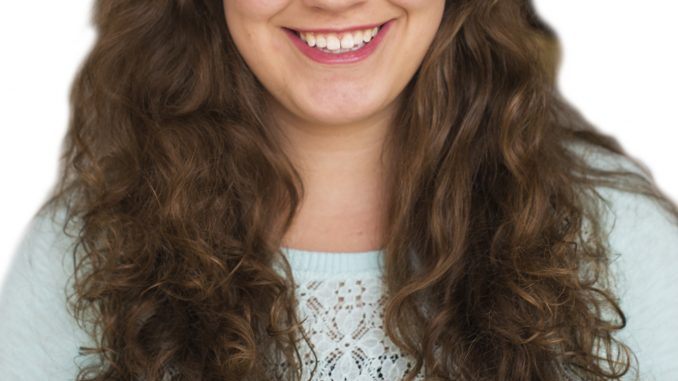
 LGBTQ youth have found comfort in urban areas like San Francisco and New York City, dating back to the time of the late 1950s and ‘60s. Today these cities still serve as safe havens for LGBTQ citizens because of their continued ties to activism and community building, as well as their access to legal protections.
LGBTQ youth have found comfort in urban areas like San Francisco and New York City, dating back to the time of the late 1950s and ‘60s. Today these cities still serve as safe havens for LGBTQ citizens because of their continued ties to activism and community building, as well as their access to legal protections.
And with Philadelphians having recently voted in favor of a measure to make the Mayor’s Office of LGBT Affairs a permanent fixture, Philadelphia has improved its rank among these LGBTQ friendly cities and has made a historic move in recognizing the unique struggles of LGBTQ Americans.
Mark Segal, publisher of the Philadelphia Gay News and an LGBTQ activist, told PhillyVoice this is the first LGBT government office made permanent in the U.S.
“It’s never been done before,” Segal told PhillyVoice. “It’s not only revolutionary, it’s pioneering.”
When looking back, I believe this move will have helped Philadelphia take its place on the right side of history—the one in which citizens fight for the rights of other citizens.
Morgen Snowadzky, recipient of the Marc David LGBTQ Scholarship, which is focused on LGBTQ advocacy, said she was happy to hear Philadelphia became the first city in the nation to make this historic move.
“I think it’s really exciting that that’s history that’s being made by Philadelphia,” said Snowadzky, a senior women’s studies major. “And not that other cities aren’t doing similar work, but that it’s really neat that we are dedicated to the permanency of that.”
In making the Office of LGBT Affairs permanent, the city has renewed its commitment to efforts that make equality a reality for all citizens.
Since the creation of the Office of LGBT Affairs in 2008 by an executive order handed down by Mayor Michael Nutter, the city has made impressive strides toward inclusion of LGBTQ citizens.
In 2013, legislation was passed “to provide for equality of treatment of all persons in the City of Philadelphia regardless of gender identity or sexual orientation.”
This legislation allowed transgender and gender non-conforming citizens to use public bathrooms reflective of their gender identity, and also granted protections and rights for life partners, prior to the legalization of gay marriage this past summer.
Last month, a bill was passed calling for single-occupancy bathrooms to remove “men’s” and “women’s” signs in an effort to be more gender-inclusive.
Director of LGBT Affairs Nellie Fitzpatrick backed this move. She told PhillyVoice last May this legislation needed to be passed.
“You have to have a statute regulating this stuff because people won’t just do it on their own,” Fitzpatrick said.
These types of legislation are necessary in the fight for equality for LGBTQ citizens, because while prejudices cannot always be defeated and egalitarian beliefs cannot always be enforced, legislation can be.
I am glad the permanency of the Office of LGBT Affairs, led by Fitzpatrick, will allow for continued governmental advocacy.
I think it is the university’s turn to take official steps toward advocacy for the community. Temple is still lacking an LGBTQ resource center dedicated solely to aiding its students.
With Temple embracing the phrase “Philly Made” in advertising, shouldn’t the university follow the city’s lead and dedicate a space for the LGBTQ community?
Of course, the university does have some resources for LGBTQ students, but they are simply not enough.
Tuttleman Counseling offers counselors for LGBTQ students and the Wellness Resource Center offers LGBTQ programming, as well as Safe Zone training, but neither of these offices are dedicated solely to the concerns of the LGBTQ community.
A concentrated safe space, where there is some sort of full-time staffing dedicated to helping these students is necessary. This staff doesn’t have to be large and this space doesn’t have to be flashy. I think one or two full-time staff members and a single room in the Student Center could be a good starting point.
In the absence of such a space, student groups, like Queer Student Union and Queer People of Color have been creating temporary safe spaces for students at their meetings. These groups offer students a support system, but as Gabe Gonzalez, president of QPOC, said, there is only so much students can do for other students.
“We’re more of a healing space,” said Gonzalez, a senior media studies and production major. “I feel like there is no action-oriented area for affairs for LGBT students.”
The type of space that Gonzalez describes is necessary to help students sort out administrative issues, like changing one’s name in Temple’s files or dealing with instances of homophobia inside the classroom. These are the types of issues that resources and aids out in the city simply cannot help students fix; students need help from within the university.
Other universities, like the University of Pennsylvania, have made a space on its campus for these kinds of resources.
While it is clear Philly has taken a laudable step in supporting the LGBTQ community, Temple could still be doing more.
And if we are going to consider ourselves “Philly Made,” I think we should be.
Jenny Roberts can be reached at jennifer.roberts@temple.edu.
Editor’s note: Morgen Snowadsky was previously a freelance writer for The Temple News. She played no role in the editing process of this article.



Be the first to comment